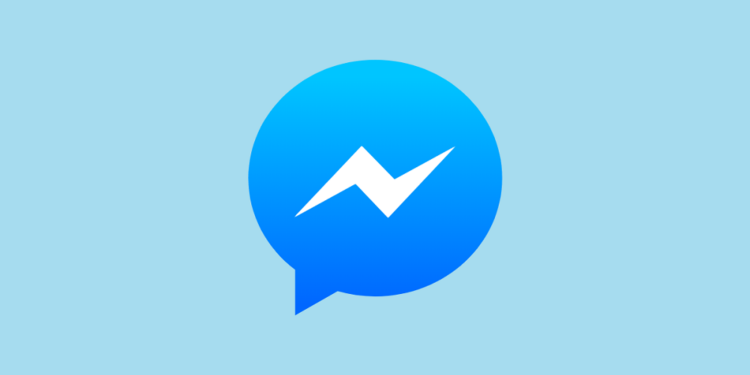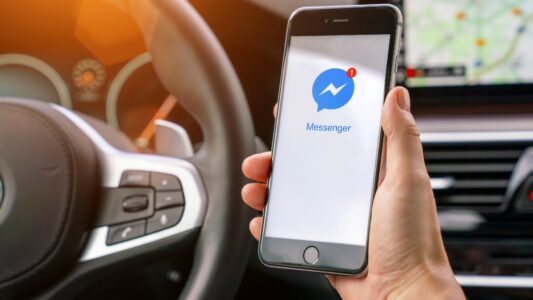On social media, do you wish to secure your data? It is thus preferable to log out of Facebook Messenger and deactivate or delete it. How, though, is Facebook gathering user data? The 2016 Cambridge Analytical Scandal may be fresh in your memory. Former US President Donald Trump recruited this UK-based data company to obtain information from over 50 million Facebook users to alter the voting booth during the election. Furthermore, it was discovered in 2018 that Facebook collected user data and monitored their actions through its Onavo VPN app. Due to the widespread data breach incidents, they are violating your privacy, acting unethically, disobeying privacy laws, and primarily focusing on children (ages 13 to 17).
They eventually withdrew to get as much data as possible from their consumers. As a result, almost all users are now beginning to turn away from Facebook. You are incorrect, though, if you believe that deactivating your Facebook account also deactivates Messenger. Despite being under Facebook, the two services are not the same. You should protect or delete your Facebook Messenger privacy individually to protect your privacy. That’s only feasible if you have already deactivated your Facebook account. Not to add, you should also delete your Facebook account to remove Messenger fully. How to deactivate Facebook Messenger? This is a little instruction for you.
Why Would You Want To Delete Messenger?
All of your private data is stored in Facebook Messenger. You give the app permission to access your contacts, microphones, and cameras during installation. Is Facebook Messenger private for you? No, is the response. It also has a low ranking on the list of “secure messaging apps.” It can access all of your device’s online activity and follow your actions. It also doesn’t have end-to-end encryption for your private chat data. Disable the camera and microphone access if you still wish to use Facebook Messenger.
How To Deactivate Facebook Messenger?
With a few simple steps, deactivating Facebook Messenger is simple. You must first deactivate or delete your Facebook account before permanently deleting it.
Deactivate Facebook Messenger On iPhone Or iPad
See the steps below to deactivate Facebook Messenger on the iOS device.
- On your device, launch Messenger and log in.
- In the upper left corner, click the profile image.
- Open Account Settings by scrolling down.
- You’ll be redirected to a page. Navigate to Your Facebook Information.
- Select Ownership and control of the account.
- Deactivation and deletion can be selected.
- You’ll be prompted to delete or deactivate your Facebook account before anything more appears on the screen. Decide which option to take. Messenger is the only app permanently deleted when you delete your Facebook account. If not, choose Proceed with account deletion.
- Enter your password to verify.
- Click “Submit.”
But if you still need to delete your account entirely, you can reactivate it. The next time you log into Messenger, use the same login ID and password.
Deactivate Facebook Messenger On Android
Compared to an iOS device, the procedure is a little different.
- On the Android phone, open the Messenger chat.
- Tap the profile photo in the upper left corner of Chats.
- Navigate to Legal & Policies.
- To deactivate Messenger, click.
- Put in the password.
- Select “Submit.”
Use the same username and password to log in again to reactivate. But remember, for it to function, you must first deactivate Facebook. On Mac or PC, however, the deactivation procedure is ineffective. Only smartphone apps make this feasible. For this reason, consider contacting Facebook support and asking them to deactivate your Messenger account if you misplace your phone or use a device other than a mobile one. If you still need to, you can wait for Facebook to update its official documentation on using any device to deactivate Facebook Messenger.
How To Delete Facebook Messenger Permanently?
One can only delete Messenger by deleting their Facebook account, as previously explained. Additionally, deleting Messenger does not instantly delete Facebook. That needs to be done independently. How to Delete a Facebook Account.
- Go into Facebook and log in.
- In the upper right corner, click the three vertical rows.
- Navigate to Settings > Settings & Privacy.
- Locate Your Facebook Information by scrolling down, then choose Account Ownership and Control.
- Choose Deletion and Deactivation.
- Then, click Proceed to Account Deletion after selecting Delete Account.
- Give a justification, then click to proceed.
- After providing your password, click Proceed.
Now that you have deleted Facebook, delete your Messenger by following the steps mentioned. By deleting both, you will also be deleting any associated posts, images, videos, and social network data. Secure your online social life as a result. You may download posts and images to the device before deleting Facebook. If not, there would be no way to get those back.
How To Turn Off Facebook Messenger Notification?
Refusing to delete or deactivate Facebook Messenger? Not an issue. Ultimately, you may hide your activity status and turn off Messenger notifications if they annoy you.
- Click your profile image in the top left corner of the chat window to launch it.
- Choose “Active Status.”
- If the switch indicates that you are inactive, flip it off.
- Go back now.
- Select Sounds & Notifications.
- Activate Do Not Disturb. As a result, Messenger won’t send you any notifications. Additionally, you may individually adjust its settings, such as turning off the vibration, ringtone, and notification sound.
Also, Check:
The Bottom Line:
It’s best to step away from social media to protect and hide your privacy from being seen. The first step is to delete Messenger and Facebook. But it appears unachievable in the modern society. Nevertheless, Facebook will not readily let you leave. After your deletion procedure, it may take up to 90 days for all your posts and images to be deleted. In addition, your photos are still there on your friend’s wall. To delete those as well, get in touch with them. Additionally, the messages you send your pals stay in their chat window. Thus, use caution while disclosing personal information on social media.




